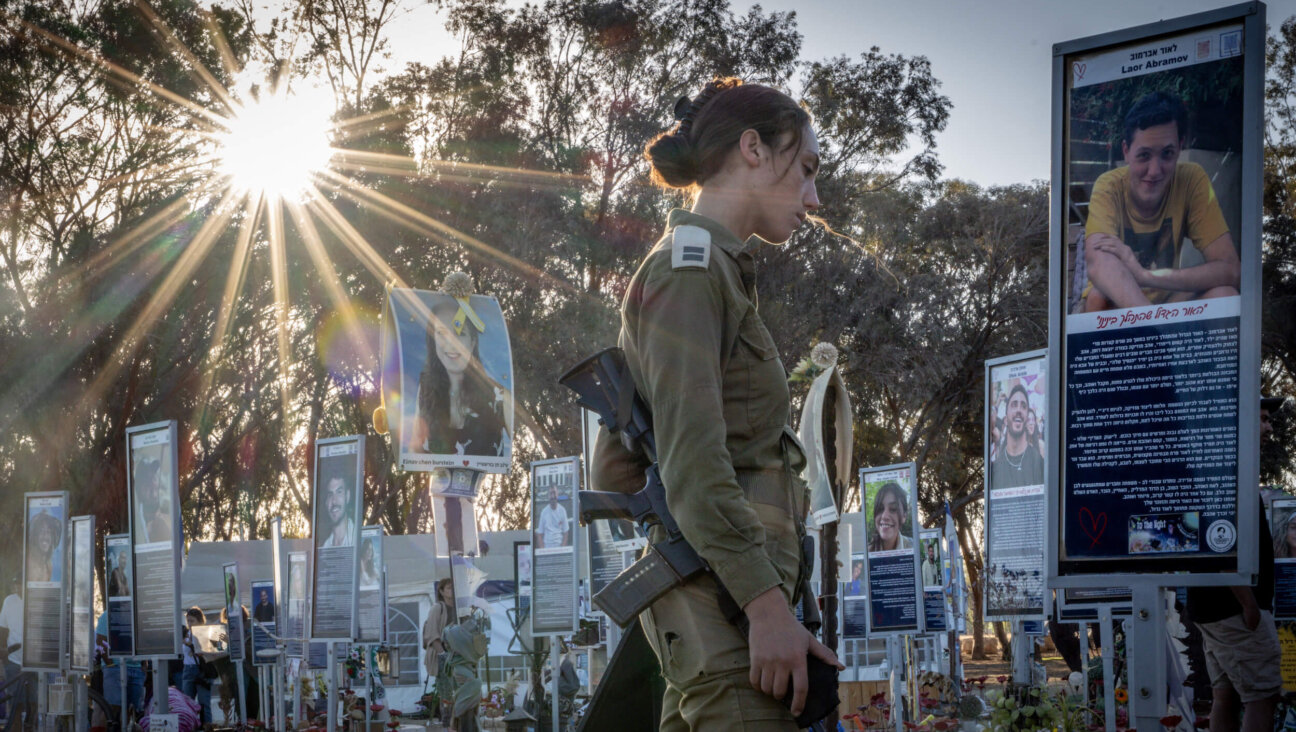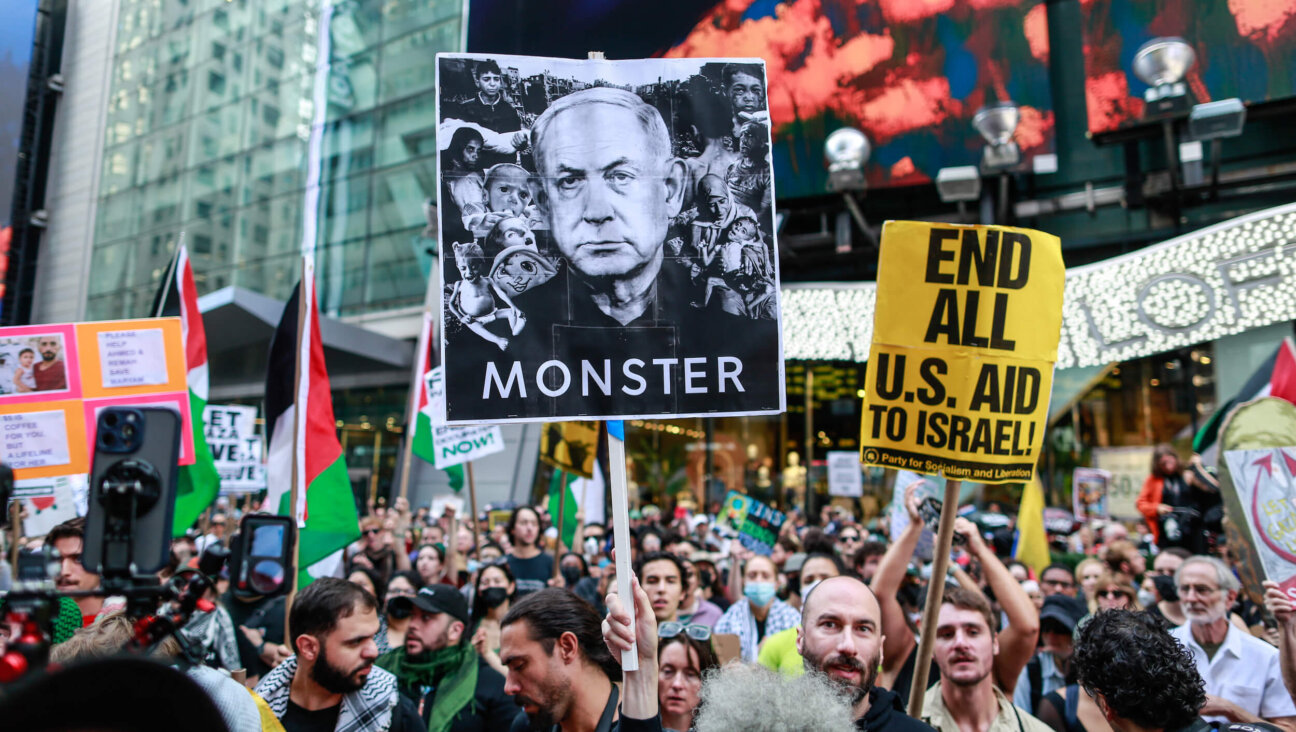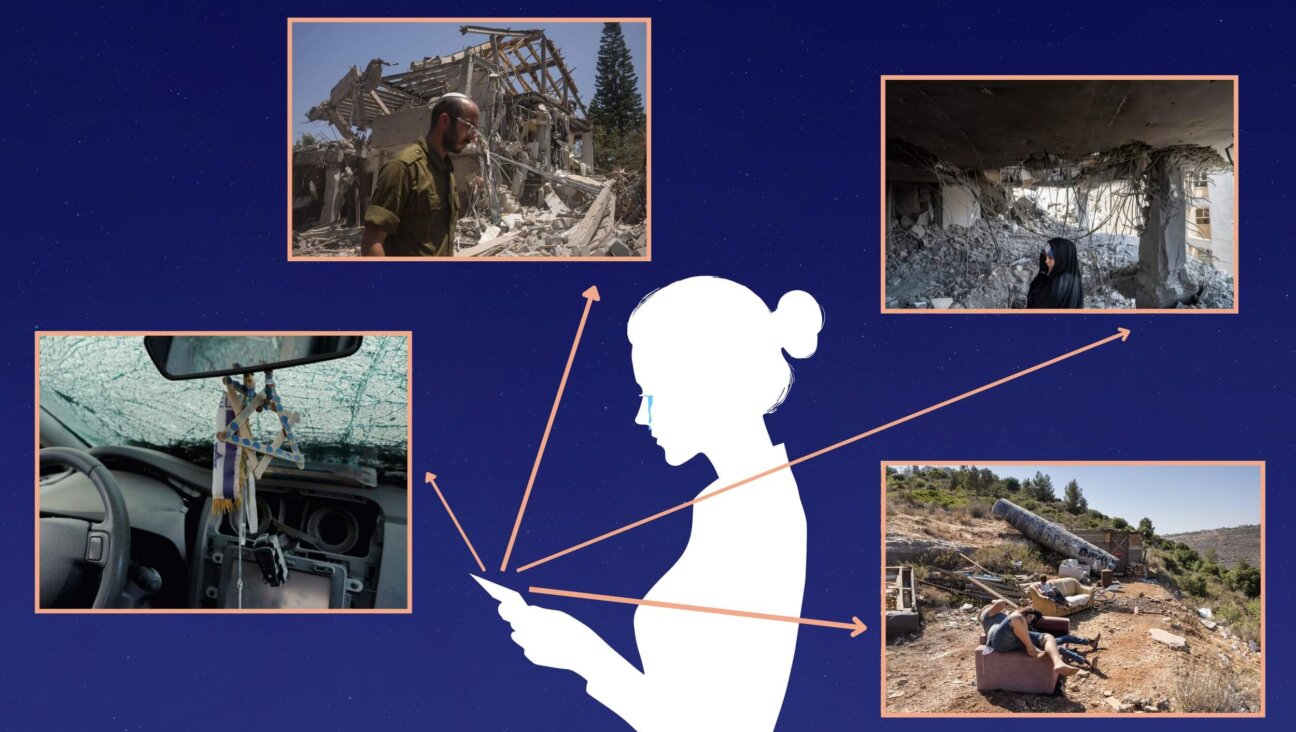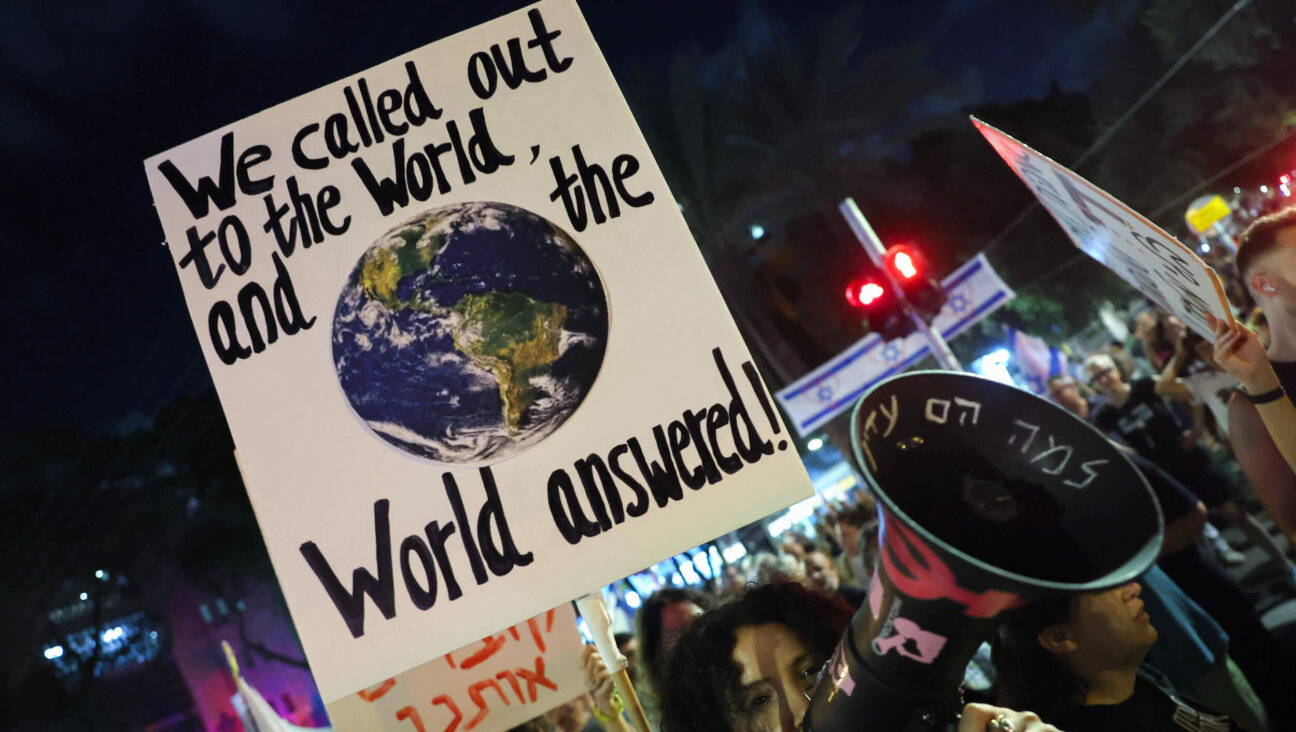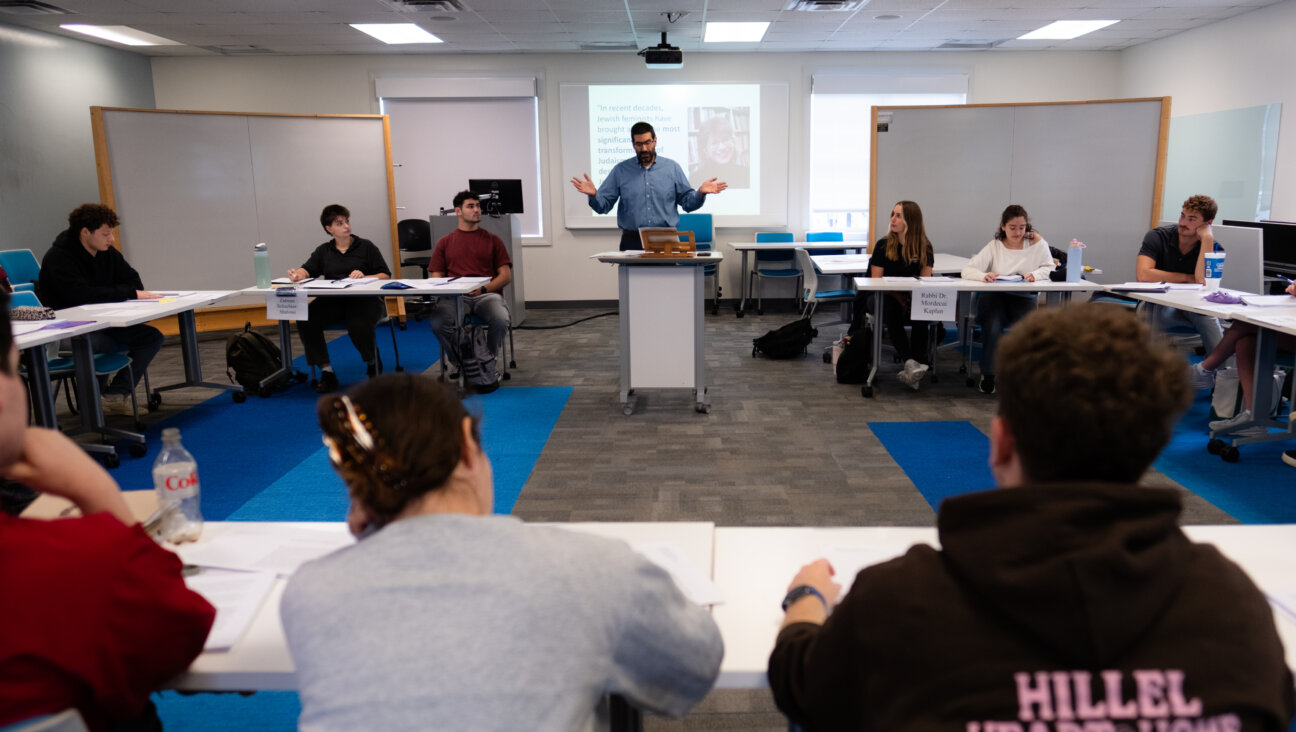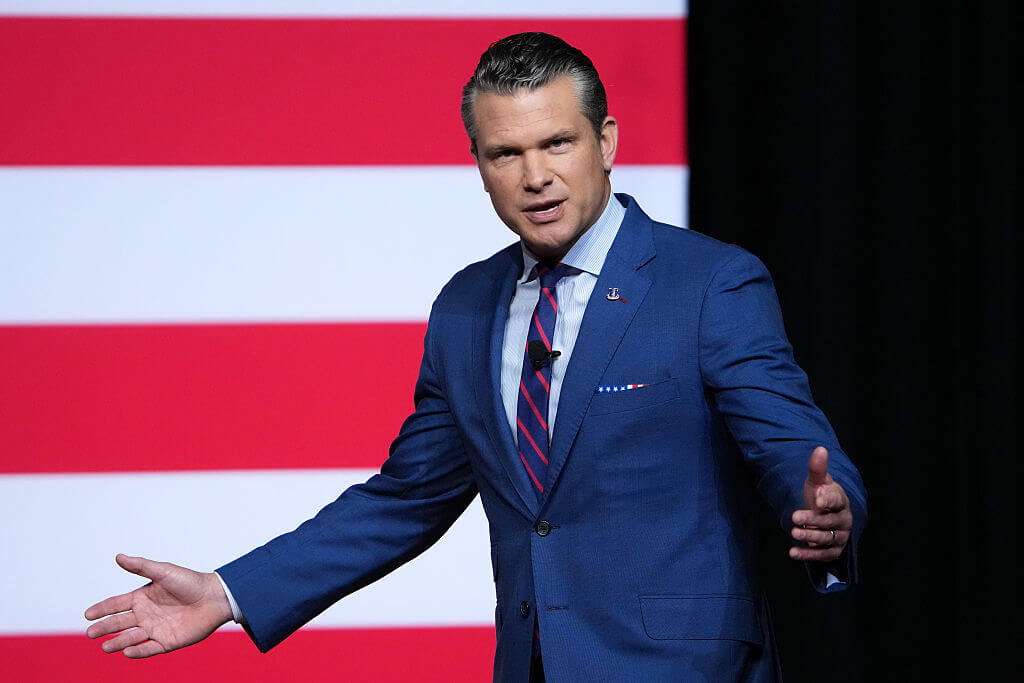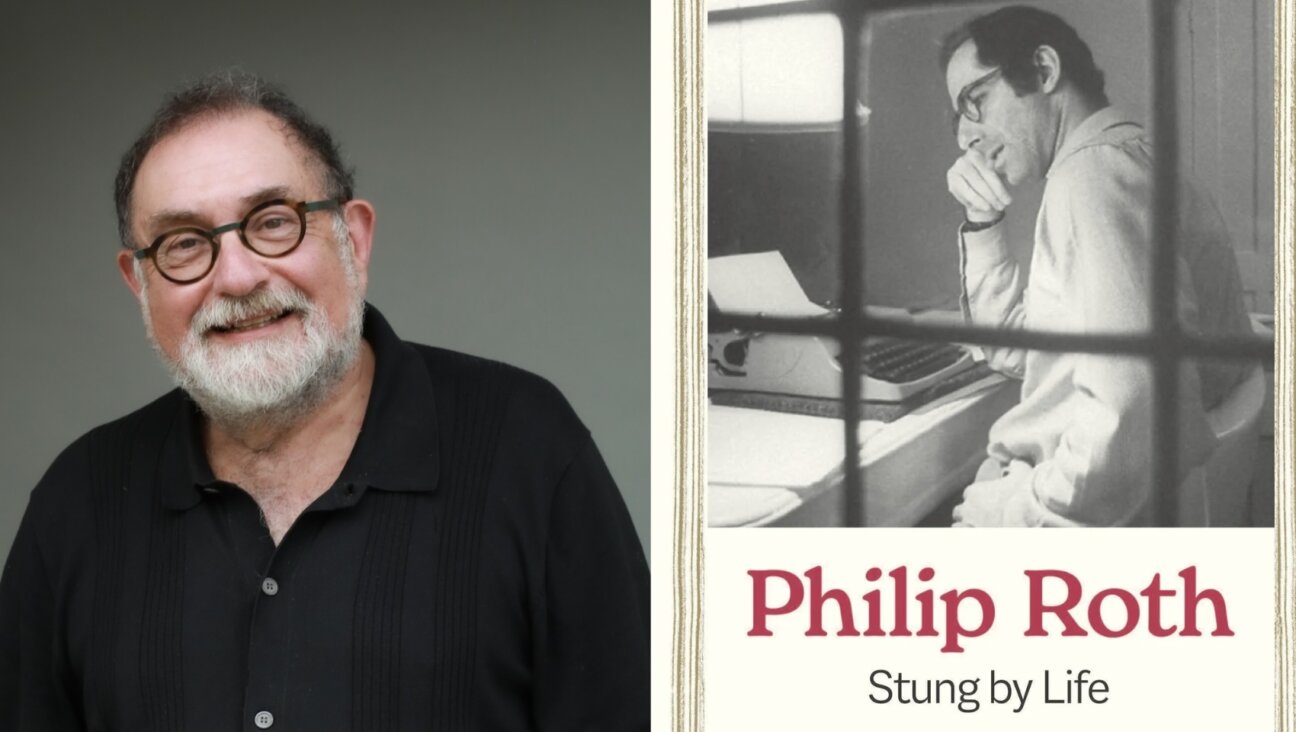Negotiator Breaks Down Science of Iran Nuclear Deal

Image by Getty Images
Sign up for Forwarding the News, our essential morning briefing with trusted, nonpartisan news and analysis, curated by Senior Writer Benyamin Cohen.
The Forward urged readers in to be “productive, reasoned, thoughtful, appropriately skeptical, [and] engaged” in deciding to support or oppose the Iran nuclear agreement concluded in Vienna — and to take seriously concerns that this might increase the threat to Israel.
But it also acknowledged that the status quo is unacceptable, and that readers should examine the agreement on its merits. Let me lay out how this agreement increases the security of the United States, Israel and the world.
This agreement, known as the JCPOA, effectively prevents Iran from producing enough weapons-grade material to build a nuclear weapon. It expands the current two- to three-month breakout time to at least a year — enough time for a strong allied preventive response. It enables unprecedented verification tools to detect noncompliance. And it takes none of our options off the table.
The deal provides an agreement between the great powers and Iran that Iran will never develop or acquire a nuclear weapon, in turn providing a basis for an overwhelming response should it ever attempt to do so. The unity of purpose by the signatories — China, Russia, France, Germany, the United Kingdom, the European Union and the United States — is unprecedented.
Most important, we got the science right. I spent 40 years as a nuclear physicist faculty member at MIT and much of this year negotiating with Iran’s nuclear experts. And I drew on exhaustive technical analysis by our leading nuclear experts at the Department of Energy’s national laboratories and nuclear sites.
Preventing the pathways to a weapon
The JCPOA blocks each of Iran’s pathways to the fissile material necessary to make a nuclear weapon:
Drastically reduces uranium stockpile: Iran will reduce its stockpile of low- enriched uranium by 98% — and eliminate its 20%-enriched uranium stockpile. This takes Iran from having the enriched uranium on hand to supply up to a dozen weapons to a one-year breakout time to supply even one weapon.
Cuts back centrifuges: Iran must reduce installed centrifuges by well over two thirds, from 19,000 today to just over 5,000 operating centrifuges. For the next 10 years, only the oldest and least capable centrifuges may operate.
Curbs the plutonium path: Iran will convert the Arak reactor, capable of producing enough weapons-grade plutonium for one-to-two weapons per year, to produce an order of magnitude less plutonium. And cheating will be easily detected. For added protection against a breakout, Iran will send out of the country all spent fuel that could be reprocessed to extract plutonium.
Unprecedented verification and access
An unprecedented level of verification ensures compliance. Trust is not an issue. The International Atomic Energy Agency (IAEA) will have the necessary access and tools to Iran’s nuclear facilities.
At declared sites, inspectors will have regular access with as little as two hours’ notice. At undeclared sites, inspectors would have access in as few as 24 hours. If Iran disputes access to a site, this agreement provides a crucial new tool to resolve disputes within 24 days and gain access.
Detecting cheating
The IAEA will detect cheating and noncompliance. You can’t just flush nuclear material down the toilet or otherwise hide it. Radioactivity leaves behind detectable traces that we know how to find.
Since 1980, we have trained every IAEA inspector at our Los Alamos National Laboratory. We offer a dozen training courses and ensure that these inspectors have the most advanced monitoring devices and electronic seals, many of which we developed.
Also, if Iran refuses to comply in the future, we have all tools at our disposal — including a return to the most crippling financial and economic sanctions ever imposed on a country over its nuclear activities.
A lasting, transparent agreement
The plan approved in Vienna is indefinite. Some provisions will be in place for 10 years, others for 15, and still others for 20 or 25. But the transparency requirements and Iran’s most fundamental obligation — to forego a nuclear weapons program — are permanent.
To be clear, there are no “side” or “secret” deals. The JCPOA requires that Iran finally cooperate with the IAEA to close the case on Iran’s previous activities relevant to nuclear weapons to the IAEA’s satisfaction. Iran is required to submit certain confidential documents directly to the IAEA.
Of course, the intelligence collection capacities of the U.S. and our friends and allies is the foundation to stop any covert activity. Our Director of National Intelligence has said that, while no agreement could give us 100% certitude, the JCPOA puts us in a far better place when it comes to visibility into Iran’s program. The risk to Iran of having any cheating detected and driving a strong international response are greatly enhanced, thereby deterring covert activities.
Our bottom line
President Obama and I believe that a nuclear-armed Iran is an existential threat to Israel and our other friends and allies in the Middle East. Make no mistake, Iran was a nuclear threshold state before the negotiations. This deal moves them back from that threshold for a considerable period and raises our verification capabilities forever.
This historic agreement presents the best possible opportunity to eliminate the Iranian nuclear weapon threat. And it frees the United States and the international community to address the many other problems that we have with Iran’s regional actions through strong and coordinated security measures.
The United States remains the world’s economic, military and diplomatic leader. We are committed irrevocably to the safety and security of the State of Israel and her people. Iran will never be allowed to have a nuclear weapon. This agreement strengthens that commitment.
Ernest Moniz is the U.S. Secretary of Energy.
